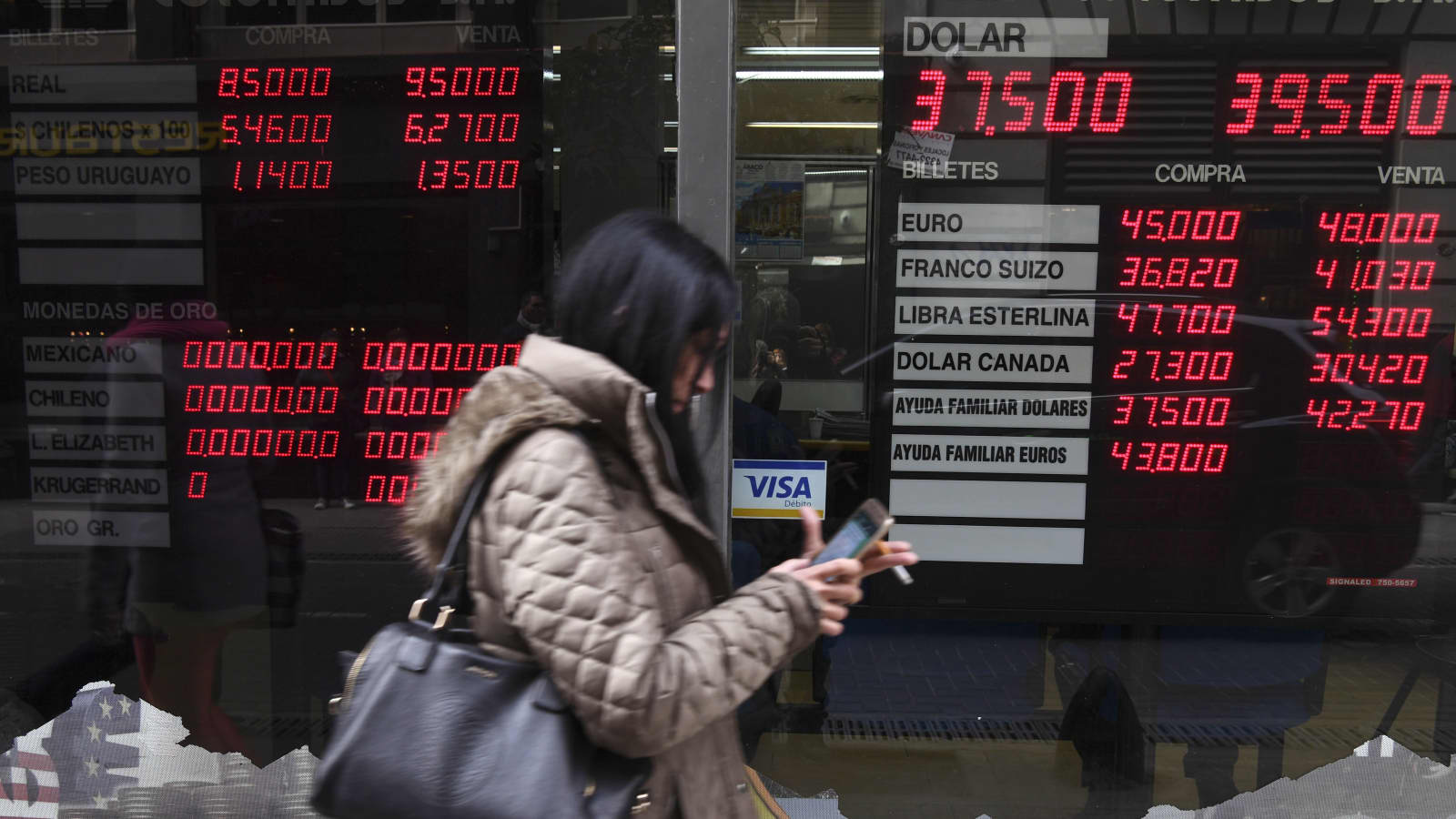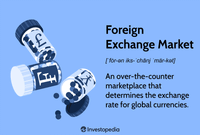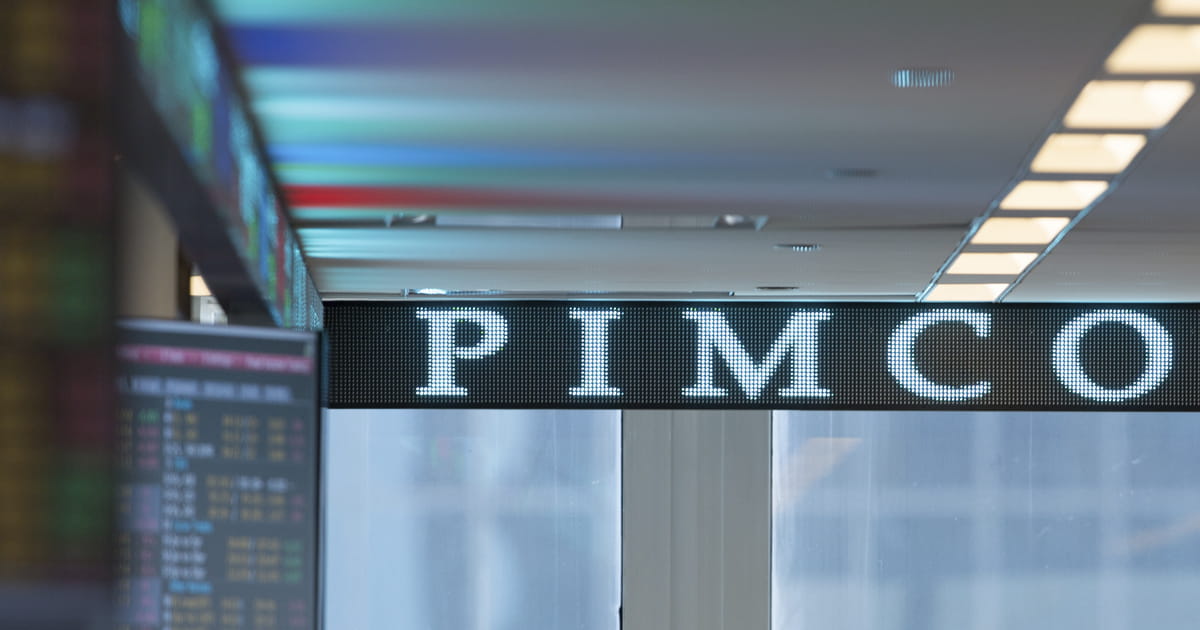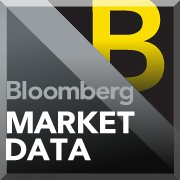Explore web search results related to this domain.

The foreign exchange, also known ... largest financial market in the world with a daily volume of $6.6 trillion. Forex is the digital site where one currency is exchanged for another. The forex market has a lot of unique attributes that may come as a surprise for new traders. Consider teaming up with a good forex broker if you're new to the game and want to engage in some currency trades. The foreign exchange, also known as FX or the forex market, is a global marketplace ...
The foreign exchange, also known as FX or the forex market, is the largest financial market in the world with a daily volume of $6.6 trillion. Forex is the digital site where one currency is exchanged for another. The forex market has a lot of unique attributes that may come as a surprise for new traders. Consider teaming up with a good forex broker if you're new to the game and want to engage in some currency trades. The foreign exchange, also known as FX or the forex market, is a global marketplace for exchanging national currencies against each other.Market participants use forex to hedge against international currency and interest rate risk, to speculate on geopolitical events, and to diversify portfolios. Major players in this market tend to be financial institutions like commercial banks, central banks, money managers, and hedge funds. Global corporations use forex markets to hedge currency risk from foreign transactions.The volume of forex trades made by retail investors is extremely low compared to financial institutions and companies but it's growing rapidly in popularity. Investors base currency trades on a combination of fundamentals such as interest rate parity, inflation rates, monetary policy expectations, and technical factors including support, resistance, and price patterns. The resulting collaboration of the types of forex traders is a highly liquid, global market that impacts businesses around the world.Forex is the largest market in the world because it empowers everyone from central banks to retail investors to potentially see profits from currency fluctuations related to the global economy. Various strategies can be used to trade and hedge currencies such as the carry trade which highlights how forex players impact the global economy. The reasons for forex trading are varied. Speculative trades executed by banks, financial institutions, hedge funds, and individual investors are profit-motivated.
Find detailed information on the health of credit and financial markets in the United States, Europe and Japan. The Global Financial Markets (GFM) is a weekly publication that reports key financial and macroeconomic information for both developed and emerging markets.
Get currency exchange rates, stock market indexes, government bond spreads and more for more than 50 countries in Latin America, Asia, Africa, the Middle East and Europe. Find detailed information on the health of credit and financial markets in the United States, Europe and Japan. The Global Financial Markets (GFM) is a weekly publication that reports key financial and macroeconomic information for both developed and emerging markets.Currency exchange rates, stock markets and government bond spreads are included for more than 50 countries in Latin America, Asia, Africa Middle East and emerging Europe as well as other key external vulnerability indicators. For the U.S., Europe and Japan, graphics and tables present information on the health of credit and financial markets.Keep track of the international markets that matter to your business. Get the latest financial and macroeconomic info for both developed and emerging markets.Keep track of the international markets that matter to your business. Get the latest financial and macroeconomic information for both developed and emerging markets.


From the end of November the BBC will discontinue its market data feeds on both the website and red button (UK only) services.
The BBC has discontinued its market data feeds on both the website and red button (UK only) services. We have previously provided delayed updates on major stock prices, currencies, and commodities.Although we will no longer supply market data in this format, you can continue to access this information through various alternative sources.BBC News will continue to provide market data headlines on the News Channel and on BBC Radio 4.
The foreign exchange market is an over-the-counter (OTC) marketplace that determines the exchange rate for global currencies. It is, by far, the largest financial market in the world and is made up of a global network of financial centers that transact 24 hours a day, closing only on the weekends.
The foreign exchange market—also called forex, FX, or currency market—was one of the original financial markets formed to bring structure to the burgeoning global economy. This asset class makes up the largest financial market in the world in terms of the value of currency units being traded.This determines how much of country A’s currency country B can buy, and vice versa. Establishing this relationship (price) for the global markets is the main function of the foreign exchange market. This also greatly enhances liquidity in all other financial markets, which is key to overall stability.Free-floating currencies include the U.S. dollar, Japanese yen, and British pound, while examples of fixed floating currencies include the Panamanian balboa and the Saudi riyal. One of the most unique features of the forex market is that it’s made up of a global network of financial centers that transact 24 hours a day, closing only on the weekends.Foreign exchange markets serve an important function in society and the global economy. They allow for currency conversions and facilitating global trade (across borders), which can include investments, the exchange of goods and services, and financial transactions.
:max_bytes(150000):strip_icc()/foreign-exchange-markets.asp-final-16abed069d5e4ba0924142476dec4211.png)

Shares fell globally on Wednesday, hit by a drop in tech stocks sparked by a record sell-off for U.S. chipmaker Nvidia and as expectations of fading global growth bruised riskier assets, pushing oil prices to multi-month lows and buoying bonds. European shares shed 1%, with major markets in ...
LONDON (Reuters) -Shares fell globally on Wednesday, hit by a drop in tech stocks sparked by a record sell-off for U.S. chipmaker Nvidia and as expectations of fading global growth bruised riskier assets, pushing oil prices to multi-month lows and buoying bonds. European shares shed 1%, with major markets in London, Paris and Frankfurt down between 0.6% and 0.9%. Semiconductor companies were the biggest losers, with ASML Holdings dropping 5.4%.Given the Federal Reserve's labour market focus, Friday's release could determine whether a rate cut expected this month will be regular or super-sized. "We reckon U.S. growth fears are overplayed and expect a strong payrolls report on Friday," said Alex Loo, FX and macro strategist at TD Securities. Economists polled by Reuters expect the U.S. economy to have added 160,000 jobs in August, a rebound from July's 114,000 increase. Ahead of the releases, moves in currencies and U.S.Investors noted spiking volatility as liquidity sloshes back into markets following the summer. Brent crude futures fell 0.6% to $73.34 a barrel, trimming some earlier losses, while U.S. crude was last down 0.6% at $69.96, both near their lowest levels since December. They fell nearly 5% on Tuesday. Concerns over the sluggish outlook in China - the world's biggest oil importer - and the possibility of a global slowdown that would mean reduced fuel demand have exacerbated the decline in oil prices."One of the big risks is that you have this market concentration, and all it takes is those names to be volatile, for it to feed through to the entire market," said Justin Onuekwusi, chief investment officer at investment firm St.

(Bloomberg) -- After having sailed through uncharted waters repeatedly over the past two decades, the developed world’s top central banks are entering a new stretch: For the first time, they’re engaging in joint quantitative tightening.Most Read from BloombergChicago's Migrant Surge Is ...
(Bloomberg) -- After having sailed through uncharted waters repeatedly over the past two decades, the developed world’s top central banks are entering a new stretch: For the first time, they’re engaging in joint quantitative tightening.Most Read from BloombergChicago's Migrant Surge Is Stirring Trouble for Democrats in DNC Host CityUK Transport Minister Clears Path for More 20mph Speed ZonesWith Self-Driving Vans, Hamburg Tries to Make Microtransit WorkThe Serious Work That Free Play Can DoLast“Most if not all of the governments are in acute need of public financing and debt issuance,” said Stephen Jen, chief executive of Eurizon SLJ Capital. “How could the central banks fully prosecute their QT plans against this headwind of large debt issuances?” · Full prosecution would be all the harder if markets are unsettled. The big moves in the yen and global equities at the start of this month “should be a wake-up call — volatility is back,” said Jerome Jean Haegeli, a former official at the Swiss National Bank and International Monetary Fund.The 2019 episode in the US saw a severe shortage of funding in the vital repurchase agreement market, forcing a sudden shift by the Fed. That very experience gives many central bank watchers confidence that policymakers will modify their balance-sheet policies as needed to avert any major threat to financial stability.In 2022, the BOE delayed the start of its sales program due to turmoil in the UK bond market initially triggered by former Prime Minister Liz Truss’s fiscal plans. Such was the volatility that the central bank ended up briefly buying gilts again under its financial-stability mandate.
The dollar underwent a sharp devaluation and the foreign currency market grew and came to be dominated overwhelmingly by private traders rather than central banks. · However, fixed-rate systems never died out completely. The bureaucrats of Japan's Ministry of Finance and the Bank of Japan ...
The dollar underwent a sharp devaluation and the foreign currency market grew and came to be dominated overwhelmingly by private traders rather than central banks. · However, fixed-rate systems never died out completely. The bureaucrats of Japan's Ministry of Finance and the Bank of Japan saw a weak yen as a critical element of the country's export-oriented economic policy.The global economy facilitates the fluid movement of products and services around the globe, a trend that has continued virtually uninterrupted 1944.The World Bank and the International Monetary Fund would ensure global economic stability. · In order to facilitate a fair and orderly market for cross-border trade, the conference produced the Bretton Woods exchange rate system. This was a gold exchange system that was part gold standard and part reserve currency system.At the end of the same decade, Eastern Europe and Russia, which were never a part of the old Bretton Woods system, joined the globalization party. Suddenly, it was 1944 all over again, with the so-called "emerging markets" taking the place of Germany and Japan with a desire to sell their goods to the developed markets of the U.S. and Europe. Just like their predecessors, many of these countries, particularly China and other Asian economies, believed that maintaining undervalued currencies was a key to growing and sustainable export markets and thus to increasing domestic wealth.
:max_bytes(150000):strip_icc()/forex-lrg-4-5bfc2b2146e0fb005144cac3.jpg)
Persistent rate increases in the United States may be having very negative impacts on the global economy.
Persistent rate increases in the United States may be having very negative impacts on the global economy. When well over 100 nations see the value of their currencies drop it is highly unlikely that the United States can pursue its economic goals unaffected.Currency exchange values are displayed in the buy-sell board of a bureau de exchange in Buenos Aires, on August 31, 2018. - Argentina's peso began to recover on Friday as markets opened, making a tiny 0.68 percent gain after losing 20 percent of its value against the dollar over the previous two days. A review of the values of 143 global currencies indicates that so far this year, more than 80 percent have fallen in value.If the currency of a nation declines meaningfully over a sustained period, it creates significant problems for that nation's economy. Inflation increases. There is pressure on interest rates to rise. Resources must be diverted from economic development and put into financial payments much of which could be sent overseas.The point here is that persistent rate increases in the United States may be having very negative impacts on the global economy. When well over 100 nations see the value of their currencies drop it is highly unlikely that the United States can pursue its economic goals unaffected.


Major Asian and European stock markets mostly fell Wednesday after concerns about the red-hot semiconductor industry fuelled a tech sell-off.In Europe on Wednesday, the Frankfurt and Paris stock markets dropped as weak luxury-sector earnings added to semiconductor woes.
Markets · Cryptocurrencies · Calendar · Volume Leaders · Currencies · World Indices · Price Gainers · Price Losers · Commodities · Bonds · Stock Comparison · Currency Converter · Sectors · Business Services · Computer Hardware & Electronics · Computer Software & Services · Consumer Products & Media · Diversified Business · Energy · Financial ·Currency Converter · Sectors · Business Services · Computer Hardware & Electronics · Computer Software & Services · Consumer Products & Media · Diversified Business · Energy · Financial · Healthcare · Industrials · Manufacturing & Materials · Retailing & Hospitality · Telecom & Utilities · Screeners · Watchlists · … · Read full article · AFP News · AFP News · Wed, 16 Oct 2024, 7:26 am3-min read · Asian markets fell with Wall Street as traders fret over this year's AI-fuelled tech rally (GREG BAKER) Major Asian and European stock markets mostly fell Wednesday after concerns about the red-hot semiconductor industry fuelled a tech sell-off.Adding to pressure on the commodity were worries over demand from top importer China, a report from the International Energy Agency saying global markets remain "adequately" supplied and relatively modest output losses from hurricanes in the US Gulf Coast.The announcement heightened investor concerns over a luxury sector heavily-reliant on China, said market strategist Patrick Munnelly at traders Tickmill Group.
The international currency market helps facilitate global transactions, including loans, investments, and global trade. The international currency market is the largest financial market in the world, with an average daily trading volume of $5 trillion.
The U.S. dollar is considered the world's reserve currency since the U.S. has a stable economy and financial system. Many products, commodities, and investments are transacted in U.S. dollars, which is why it's involved in most of the major transactions and currency exchanges. Countries that don't have a stable market or currency exchange rate might opt to trade in dollars to attract investment and facilitate trade. However, there are many other currency pairs that are traded globally.The International Currency Market is a market in which participants from around the world buy and sell different currencies, and is facilitated by the foreign exchange, or forex, market.In this market, transactions do not occur on a single exchange, but in a global computer network of large banks and brokers from around the world. The currency market, or foreign exchange market ("forex"), was created to facilitate the exchange of currency that is necessary as the result of foreign trade.The international currency market is important because it helps to facilitate global transactions, including loans, investments, corporate acquisitions, and global trade.
:max_bytes(150000):strip_icc()/foreign-currency-804917648-053324a1c58746af86bfb9aab260f7f0.jpg)

Find the latest stock market news from every corner of the globe at Reuters.com, your online source for breaking international market and finance news
A look at the day ahead in U.S. and global markets from Mike Dolan ... Asian MarketscategoryPakistan's annual inflation slowed to 4.1% in December11:15 AM UTC · Updated ago · CurrenciescategoryRupee ends at record closing low for seventh straight session10:08 AM UTCCurrenciescategoryMexican peso posts biggest annual drop versus US dollar in 16 yearsDecember 31, 2024 · WorldcategoryMontenegro says it extradites Terraform Lab co-founder Do Kwon to USDecember 31, 2024 · U.S. MarketscategoryWall Street ends lower, capping a banner year1:06 AM UTCCurrenciescategorySteady sterling on track for best G10 performance against dollar in 2024December 31, 2024 · European MarketscategoryEuropean stocks clock worst quarterly showing since 2022December 31, 2024Exclusive news, data and analytics for financial market professionalsLearn more aboutRefinitiv
Although the Bretton Woods System ... global markets today, such as the International Monetary Fund (IMF), the World Bank and the World Trade Organization (WTO).4 · These organizations facilitate international transactions and set standards among governments and commercial banks.
Although the Bretton Woods System dissolved in the early 1970s, it launched the institutions that still shape global markets today, such as the International Monetary Fund (IMF), the World Bank and the World Trade Organization (WTO).4 · These organizations facilitate international transactions and set standards among governments and commercial banks. Fluctuations in exchange rates and other volatile factors, however, still drive disparities in global economies despite institutional oversight. A key factor in international finance is the concept of the currency exchange rate.Trade deficits are not necessarily indicative of a distressed economy, but they can have consequences for the global market. International financial organizations strive to address deficits and surpluses with fiscal policies, incentives and currency devaluation.Currencies, bonds, equities and commodities are all traded in international markets, driving economic growth and diversifying investment portfolios for individuals and organizations. It’s impossible to discuss international markets without acknowledging the role of emerging economies. As historically poor nations take a more active role on the global stage, they bring about new investment opportunities and drive economic growth across sectors.7Floating currencies, such as the U.S. Dollar, rise and fall with market changes.5 There are advantages and disadvantages to each type. Developing economies, for instance, typically choose a fixed, or pegged, exchange rate regimen to establish stable growth. Neither system is perfect, and part of a thorough financial education is understanding the impact and function of each type.


Traders gauging how to play further downside in the U.S. dollar are looking to the relative strength of economies around the world, as interest rate shifts from global central banks shake up currency markets.
NEW YORK, Oct 3 (Reuters) - Traders gauging how to play further downside in the U.S. dollar are looking to the relative strength of economies around the world, as interest rate shifts from global central banks shake up currency markets.Meanwhile, the U.S. presidential election and geopolitical worries threaten to inject further volatility into currency markets in coming weeks. "It's not just necessarily 'sell the dollar and buy everything,'" said Jack McIntyre, portfolio manager at Brandywine Global.Many traders betting against the buck are doing so through currencies whose yield gap with the dollar is expected to narrow. Net bets on a weaker dollar have grown to $14.1 billion in futures markets, the highest level in about a year, Commodity Futures Trading Commission data showed.Nevertheless, investors believe more downside remains for the dollar in some corners of the market. Paresh Upadhyaya, director of fixed-income and currency strategy at Amundi US, said he is looking for "idiosyncratic stories like widening interest rate differentials caused by a divergence in monetary policy."

Investors and analysts are reviewing their assessments of computer chip equipment maker ASML, they said on Wednesday, after the company cut 2025 financial guidance, citing weakness in markets other than AI and delayed orders. The position of ASML, Europe's most valuable technology company, ...
Investors and analysts are reviewing their assessments of computer chip equipment maker ASML, they said on Wednesday, after the company cut 2025 financial guidance, citing weakness in markets other than AI and delayed orders. The position of ASML, Europe's most valuable technology company, as an essential supplier to chipmakers is not in question.AMSTERDAM (Reuters) - Investors and analysts are reviewing their assessments of computer chip equipment maker ASML, they said on Wednesday, after the company cut 2025 financial guidance, citing weakness in markets other than AI and delayed orders.Genomics in Cancer Care Market Genomics in Cancer Care Market Dublin, Oct. 16, 2024 (GLOBE NEWSWIRE) -- The "Genomics in Cancer Care - Global Strategic Business Report" report has been added to ResearchAndMarkets.com's offering.The global market for Genomics in Cancer Care was estimated at US$21.4 Billion in 2023 and is projected to reach US$62.1 Billion by 2030, growing at a CAGR of 16.5% from 2023 to 2030.Shares fell another 4.9% to 635.60 euros at 0840 GMT on Wednesday, down from an all-time high above 1,000 euros ($1,088) a share in July that followed a decade-long surge based on ASML's dominance of the market for lithography tools, needed to create circuitry.

The foreign exchange market is an over-the-counter (OTC) marketplace that determines the exchange rate for global currencies. It is, by far, the largest financial market in the world and is made up of a global network of financial centers that transact 24 hours a day, closing only on the weekends.
The foreign exchange market—also called forex, FX, or currency market—was one of the original financial markets formed to bring structure to the burgeoning global economy. This asset class makes up the largest financial market in the world in terms of the value of currency units being traded.This determines how much of country A’s currency country B can buy, and vice versa. Establishing this relationship (price) for the global markets is the main function of the foreign exchange market. This also greatly enhances liquidity in all other financial markets, which is key to overall stability.Free-floating currencies include the U.S. dollar, Japanese yen, and British pound, while examples of fixed floating currencies include the Panamanian balboa and the Saudi riyal. One of the most unique features of the forex market is that it’s made up of a global network of financial centers that transact 24 hours a day, closing only on the weekends.Foreign exchange markets serve an important function in society and the global economy. They allow for currency conversions and facilitating global trade (across borders), which can include investments, the exchange of goods and services, and financial transactions.

She holds a Bachelor of Science in Finance degree from Bridgewater State University and helps develop content strategies. ... Trading in any investment market is very difficult, as evidenced by the fact that most beginning traders lose money. However, success can be found with enough of the right education, practice, and experience. So, what is currency ...
She holds a Bachelor of Science in Finance degree from Bridgewater State University and helps develop content strategies. ... Trading in any investment market is very difficult, as evidenced by the fact that most beginning traders lose money. However, success can be found with enough of the right education, practice, and experience. So, what is currency trading and is it right for you?While the market is massive, eight major currencies are responsible for nearly 80% of the volume. Currencies are traded against one another as pairs (e.g., EUR/USD), and each pair is typically quoted in pips (percentage in points) out to four decimal places. Currency prices fluctuate based on the economic situation of the countries involved, geopolitical risks and instability, and trade & financial flows, among other factors.Trading in the currency market isn't easy and can get complex very quickly. We tell you what you need to know about how currency trading works before starting.The majority of the volume in currency trading is confined to only 18 currency pairs compared to the thousands of stocks that are available in the global equity markets. Although there are other traded pairs outside of the 18, the eight major currencies most often traded are the U.S.
The foreign exchange market (forex, ... is a global decentralized or over-the-counter (OTC) market for the trading of currencies. This market determines foreign exchange rates for every currency. It includes all aspects of buying, selling and exchanging currencies at current or determined prices.
The foreign exchange market (forex, FX (pronounced "fix"), or currency market) is a global decentralized or over-the-counter (OTC) market for the trading of currencies. This market determines foreign exchange rates for every currency. It includes all aspects of buying, selling and exchanging currencies at current or determined prices. In terms of trading volume, it is by far the largest market in the world, followed by the credit market. The main participants in this market are the larger international banks. Financial centers around the world function as anchors of trading between a wide range of multiple types of buyers and sellers around the clock, with the exception of weekends.Since currencies are always traded in pairs, the foreign exchange market does not set a currency's absolute value but rather determines its relative value by setting the market price of one currency if paid for with another. Ex: 1 USD is worth X CAD, or CHF, or JPY, etc. The foreign exchange market works through financial institutions and operates on several levels.Most foreign exchange dealers are banks, so this behind-the-scenes market is sometimes called the "interbank market" (although a few insurance companies and other kinds of financial firms are involved). Trades between foreign exchange dealers can be very large, involving hundreds of millions of dollars. Because of the sovereignty issue when involving two currencies, Forex has little (if any) supervisory entity regulating its actions.In a typical foreign exchange transaction, a party purchases some quantity of one currency by paying with some quantity of another currency. The modern foreign exchange market began forming during the 1970s. This followed three decades of government restrictions on foreign exchange transactions under the Bretton Woods system of monetary management, which set out the rules for commercial and financial relations among the world's major industrial states after World War II.The foreign exchange market is the most liquid financial market in the world. Traders include governments and central banks, commercial banks, other institutional investors and financial institutions, currency speculators, other commercial corporations, and individuals.

The Global Financial Stability Report provides an assessment of the global financial system and markets, and addresses emerging market financing in a global context. It focuses on current market conditions, highlighting systemic issues that could pose a risk to financial stability and sustained ...
The Global Financial Stability Report provides an assessment of the global financial system and markets, and addresses emerging market financing in a global context. It focuses on current market conditions, highlighting systemic issues that could pose a risk to financial stability and sustained market access by emerging market borrowers.These relationships are stronger when debt vulnerabilities are elevated, or financial market volatility is low (during episodes of a macro-market disconnect). Chapter 3 assesses recent developments in AI and Generative AI and their implications for capital markets. It presents new analytical work and results from a global outreach to market participants and regulators, delineates potential benefits and risks that may arise from the widespread adoption of these new technologies, and makes suggestions for policy responses.Description: Chapter 1 highlight the near-term global financial stability risks have receded amid expectations that global disinflation is entering its last mile. However, along it, there are several salient risks and a build-up of medium-term vulnerabilities. Chapter 2 assesses vulnerabilities and potential risks to financial stability in corporate private credit, a rapidly growing asset class—traditionally focused on providing loans to midsize firms outside the realms of either commercial banks or public debt markets—that now rivals other major credit markets in size.Chapter 1 assesses that risks to global growth are skewed to the downside, similar to the assessment in the April 2023 Global Financial Stability Report. Cracks in the financial system may turn into worrisome fault lines should a soft landing of the global economy hoped for by market participants does not materialize.

Interbank business accounts for ... other financial institutions, including insurance companies, pension funds, hedge funds, asset managers and, most of all, central banks. Although currencies are considered an asset class, an investor cannot simply invest in a currency. An investment requires taking a view on the value of one currency relative to another, such as the U.S. dollar relative to the euro. Many global companies and investment management firms use the FX markets to hedge their ...
Interbank business accounts for about half of FX turnover, according to the Bank for International Settlements, but the greatest growth in participation comes from other financial institutions, including insurance companies, pension funds, hedge funds, asset managers and, most of all, central banks. Although currencies are considered an asset class, an investor cannot simply invest in a currency. An investment requires taking a view on the value of one currency relative to another, such as the U.S. dollar relative to the euro. Many global companies and investment management firms use the FX markets to hedge their currency exposures.The currency market is the largest and most liquid financial market in the world. Currencies like the U.S. dollar, the British pound, and the euro trade in the foreign exchange (FX) market 24 hours a day, fluctuating in value relative to each other almost constantly – and there are several paths to potential profits in the FX market.While there are some fixed exchange rates that still exist today, most major economies have free-floating currencies, allowing exchange rates to adjust to economic and market developments. The emergence of floating currencies is often credited for improving financial stability worldwide.International trade was thus the primary driver of supply and demand for currencies. Today, trade still influences FX markets directly through commerce and indirectly through market movements that follow official international trade and investment flow data. But over time, the importance of trade has waned as financial investors have become increasingly active in FX markets.

Current exchange rates of major world currencies. Find updated foreign currency values, a currency converter and info for foreign currency trading.
Currency rates are representative of the Bloomberg Generic Composite rate (BGN), a representation based on indicative rates only contributed by market participants. The data is NOT based on any actual market trades. Currency data is 25 minutes delayed, provided for information purposes only and not intended for trading; Bloomberg does not guarantee the accuracy of the data.Currency data is 25 minutes delayed (times in ET) and based on the Bloomberg Generic Composite rate (BGN).




:max_bytes(150000):strip_icc()/foreign-exchange-markets.asp-final-16abed069d5e4ba0924142476dec4211.png)
:max_bytes(150000):strip_icc()/forex-lrg-4-5bfc2b2146e0fb005144cac3.jpg)

:max_bytes(150000):strip_icc()/foreign-currency-804917648-053324a1c58746af86bfb9aab260f7f0.jpg)




